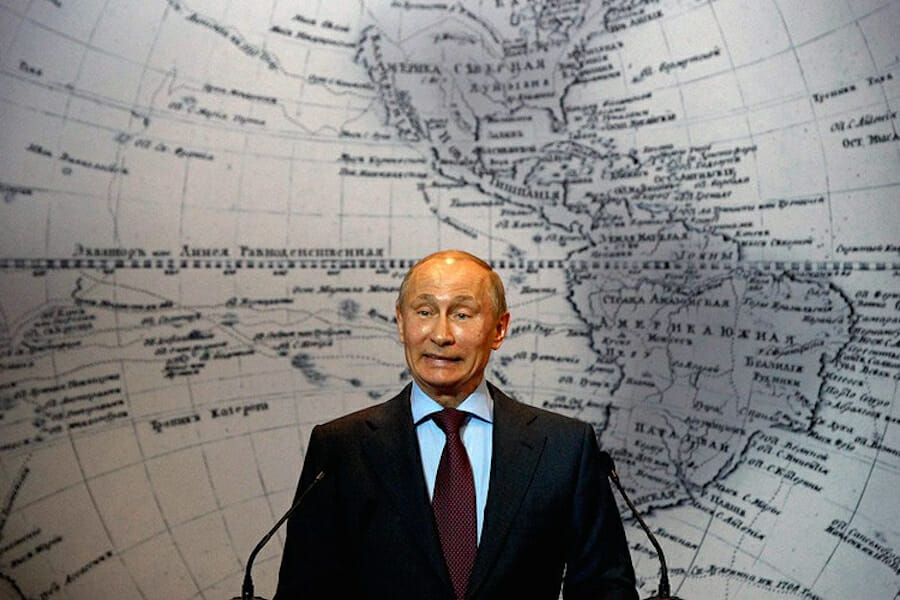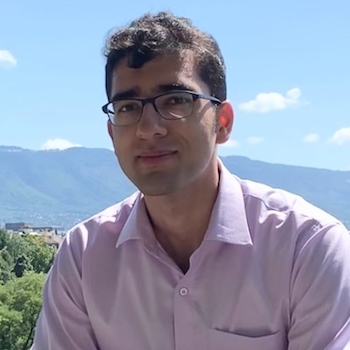
Books
Clausewitzian Perspectives on Russia’s Actions in Ukraine
Are the musings of Carl von Clausewitz, a 19th century general, relevant to a 21th century crisis? Great works are defined by their characteristic of capturing unchanging human experiences.
Clausewitz’s work has a timeless quality as it deals with the theory of war analyzing its characteristics and internal structures and not generation specific events. His concern with the root causes of war instead of the manifestations of it makes his framework of analysis relevant to the present day. The present crisis in Ukraine is rooted in the forced departure of the corrupt regime of Viktor Yanukovych. The departure of the pro-Moscow president was viewed by Russia as part of the long running NATO expansion eastwards contrary to their previous agreement. Coupled with Russia’s historical strategic imperative to expand outwards one better understands Russia’s actions.
Russia under Putin has been striving to secure its ‘privileged sphere of interests’ in post-Soviet states, which it perceives as its Near Abroad. This initiative is part of the conception of foreign policy in Russia as a tool for stabilizing the regime by generating consensus for strong and assertive Russian behaviour abroad. This legitimizes the highly centralized form of government in Moscow which is struggling to do the same in a nation experiencing terrible economic conditions and a worrying demographic crisis. In light of the humiliation endured by Russia over the Libyan vote at the United Nations, the loss of Ukraine to a pro-Western government would have greatly threatened the stability of the Russian state.
It is this context that Russia’s decisions must be understood and viewed through Clausewitzian lenses. Clausewitz understood war to be characterized by violence synchronized by leaders and tempered by people to attain certain political objectives.
The use of force was just another means of political discourse that was resorted to, since in specific situations it offered greater utility than that presented by alternative courses of action.
In the case of Ukraine, Russia had exhausted every available alternative, from covert attempts at destabilizing Yanukovych’s opposition to economic carrots and diplomatic outreach. Clausewitz stated that the smaller the penalty demanded from the opponent, the less he may be expected to resist and the more modest the political aim of the aggressor state the less reluctance it would demonstrate to abandon its aims.
Clausewitz also stated that the subjective nature of war always makes it a gamble. This was on full display in Crimea where Russia began its operations by first having the airports and the parliament seized by armed men with no identifiable markings. A Ukraine in chaos following Yanukovych’s departure did not attempt to counter this move. Had Ukraine chosen to respond strongly Russia would have had plausible deniability and could have chosen to abandon its aims claiming to have never been involved in the unrest.
However, having tested the waters Russia then upped the ante and escalated its activities in the Crimean peninsula gambling that the US and NATO would not intervene. Clausewitz provides an explanation for the Russian gamble. War is not an act of senseless passion; it is controlled by a political object whose value determines the sacrifices to be made for it. Once the expenditure of effort exceeds the political object’s value the objective must be renounced. In Ukraine there existed a clear asymmetry of objectives, as a friendly Ukrainian government is vital for Russian security. Russia attaches much more value to the Peninsula and is willing to expend significant resources while the European Union and the United States calculated that it was not worth the risk of significant investments.
Clausewitz’s work illustrates why Russia is not going to be content with its limited aims and achievements thus far. Clausewitz commented than the desire to wait for a better moment before acting and an imperfect knowledge of a situation are the only reasons that can explain a suspension of military action. The annexation of Crimea, a peninsula with a Russian ethnic majority was supported almost universally in Russia and Crimea. However, with the separation of Crimea from Ukraine a considerable portion of ethnic Russians have been separated from the mainland.
More important, however, has been the polarizing effect which Russia’s intervention has had resulting in an increased willingness to align with the West. For Russia this is an undesirable outcome. By biding its time after the takeover of Crimea it stands to benefit by allowing an unrepresentative interim government to alienate pro-Russians in eastern Ukraine. This demonstrates how Russia awaits a better opportunity which it perceives as materializing given the imperfect knowledge scenario becoming more and more certain. With the US having ruled out military intervention and the weak EU response generating little confidence Russia will face no resistance if to chooses to march into Ukraine. This inaction will prove to have devastating consequences, as rapid and decisive Western action to stop Russia would wreck domestic Russian support for the regime instantly. Sanctions by contrast will only serve to draw the nation together and justify further centralization of power and crackdowns on dissidents.
Kiev has already appointed oligarchs as governors. This has happened even as the regime has survived a suit in Ukrainian courts to declare the government unconstitutional. That this has happened in an environment wherein the judiciary is perceived to have been strong armed by the government provides great ammunition to those who oppose the Ukrainian government. With all these factors converging the situation definitely seems to be becoming more conducive to Russian military intervention in eastern Ukraine. This is a real possibility given that Russia has already massed significant forces along the border, pro-Russian activists have occupied government installations in eastern Ukraine, that there is more than a passing resemblance to Crimea. Ukraine’s prime minister insists that eastern Ukraine protests are aimed at bringing in Russian troops something that Russia denies but the US claims to have proof of.
It is not that Russians bear immense hatred for Ukrainians. However, there is a nostalgia harking back to the days of the Soviet Union. This desire is something that Putin has tapped into and exploited. In Ukraine, a nation with deep historical and cultural ties to Russia, the Putin regime has masterfully taken advantage of European and US domestic troubles. By lashing out from a position of weakness Russia has forced the West to reconsider its advance eastwards and sent states in its Near Abroad a message against aligning too closely with the West. Revisiting Clausewitz’s tomes and seeking leads from the wisdom of the past to have a guide for the future may well be in order!

